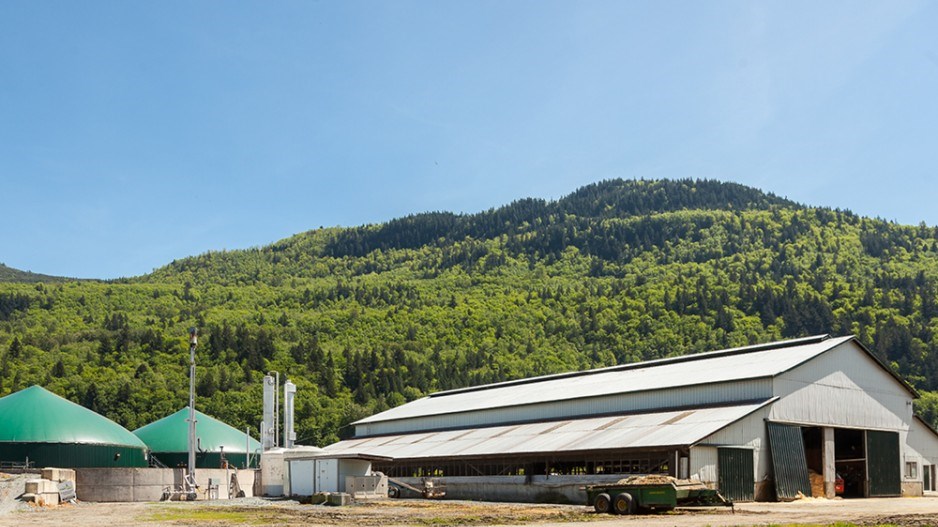The good news: As part of the province’s CleanBC plan, British Columbia is committed to reducing its greenhouse gas emissions to 40% below 2007 levels by 2030, and 80% by 2050.
The not-as-good news: Many B.C. residents are unsure of what they can do in their everyday life to fight climate change and achieve these ambitious targets.
Fortunately, FortisBC—B.C.’s largest energy provider—has taken significant steps that are designed to help home and business owners reduce their carbon footprint. Better still, it requires no costly upgrades or retrofitting of your heating and cooling systems or other gas equipment.
And it’s all thanks to Renewable Natural Gas (RNG).
What is Renewable Natural Gas?
Unlike regular natural gas, RNG (also called biomethane) is derived from something called biogas, which is produced from decomposing organic waste that already exists in landfills, agricultural waste, and wastewater from treatment facilities. It’s then captured and cleaned to create a sustainable, carbon-neutral energy source.
More than a decade ago, FortisBC became the first utility in North America to offer RNG as an energy option to its customers.
“Around 2010, changes to legislation were happening in B.C.—the Clean Energy Act; the carbon tax was introduced—and we also recognized that customers were looking for ways to reduce their carbon footprint,” says Jason Wolfe, Director of Energy Solutions at FortisBC. “There was no template to follow from other utilities in North America, so we looked to Europe, where some plans were already in place. We thought, ‘Why don’t we do that here?’”
How RNG helps the environment
All of FortisBC’s sources for RNG—whether from farms, landfills or municipal organic waste collection—already produce methane naturally. FortisBC works with partners to capture that methane, clean it, and then inject it into their system for use by customers instead of natural gas. By using carbon that is already in the ecosystem, RNG adds no new carbon emissions and is therefore carbon-neutral. Using this gas displaces the need for the company to acquire conventional natural gas from gas wells in Northern B.C. or Alberta, and in turn, reduces GHG emissions.
This is a major step forward as the province looks to transition to lower carbon energy sources. FortisBC is leading an energy transition, one that offers sustainable options for customers and ensures B.C. has the energy resiliency it requires all year long.
To date, over 10,000 FortisBC customers are participating in a voluntary program that provides RNG for use in homes and businesses. But the company’s work is far from done. In addition to continuing to seek out new sources of RNG, FortisBC recently submitted an application to the British Columbia Utilities Commission that would require new residential gas connections to automatically receive 100% renewable gas. “There’s been a great deal of interest in this application,” says Wolfe. “This indicates people are looking for a solution, and they want to be able to choose for themselves.”
As well, FortisBC has proposed in its application that by 2024, almost all of its roughly 1.2 million natural gas customers will receive one percent of their total gas as renewable and low-carbon gases. While one percent doesn’t seem like a lot, it’s actually a substantial amount of energy and the percentage is expected to increase over time, as the company acquires new supplies of RNG.
Wolfe acknowledges that much of the struggle in fighting climate change is finding solutions that are effective yet don’t cause a huge disruption to consumers, either financially or logistically. “Fortunately, RNG does just that,” he says. “FortisBC customers don’t have to change out their equipment, their facilities, their way of doing business or how they operate their home. They simply have the option of getting RNG anytime. This will help meet those provincial targets.”
“Consumers can say, ‘I have a choice in how to reduce my carbon footprint because FortisBC is providing options that are easy and affordable.’”
And the best part? You can get started right away, and start doing your part to help B.C. reach its goals for a cleaner, healthier planet.
To learn more about FortisBC and how you can bring Renewable Natural Gas into your home or business, visit fortisbc.com/whatisrng.




